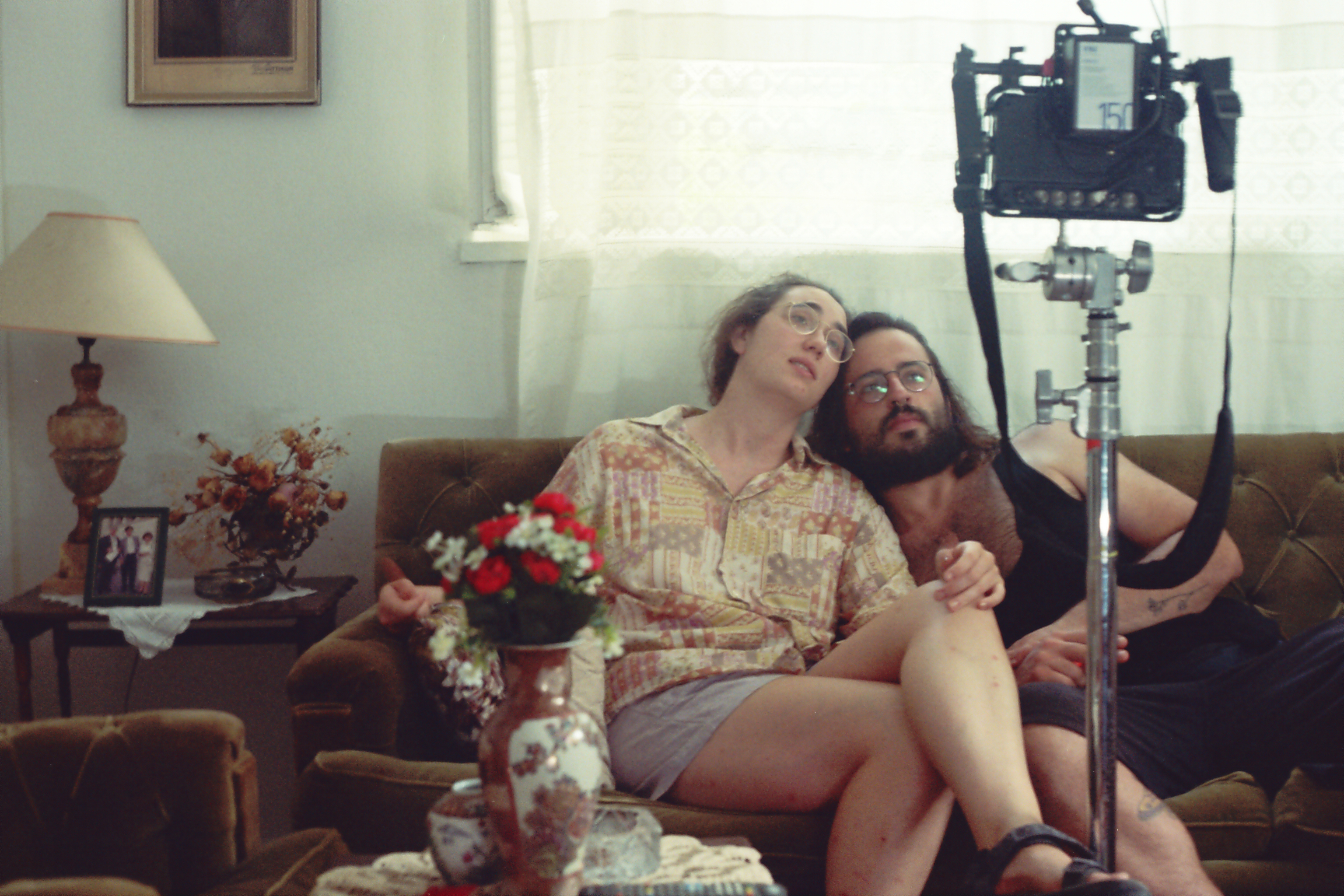Cooperation an award-winning formula
After being named Best Film in Drama, ‘Arkoudotripa’ directors talk about their creative process

Coming-of-age drama “Arkoudotripa” (The Bearcave) is as pleasing to the eye as it is to the soul. After winning the Golden Dionysos for Best Film at the 46th Drama International Short Film Festival (DISFF) earlier this month, its two directors spoke to Kathimerini English Edition about their distinctively behind-the-scenes film.
“Arkoudotripa” is a love story between two girls in the village of Elati, in Trikala, central Greece. In the first scene, the lens brings the mountains to life with the metaphysical sound of the clarinet in a mountain folk melody. Our two protagonists, Argiro (Chara Kyriazi, Best Female Performance Award at DISFF) and Anetta (Pamela Oikonomaki), struggle with the obstacles that arise when youth and sexuality clash with the mores of the small, traditional communities of the Greek countryside, communities that are all too familiar to the Greek eye. These two realities come together on the screen to create a beautiful and suspenseful first part in what is to be an “Arkoudotripa” trilogy.
Bridging two worlds seems to be a theme here, with directors Stergios Dinopoulos and Krysianna Papadakis joining forces to express their common language.

“We met in a period when we both really wanted to create. We missed the element of consistent collaboration with a person with whom we share a common philosophy, with whom we ask the same big questions. And we wanted similar things from the big screen. We found that the more character-centered stories were absent in the Greek industry, works that have more grounded stories and characters. Our visions were similar,” said Dinopoulos, 28, an art, film and visual studies graduate from Harvard University. Elati, the village where the film is set, is where he spent most of his summers as a child.
‘If someone had an idea, it did not matter where it came from, there was space for discussion’
“Our partnership began after a trip we made together to Elati a couple of years ago. We didn’t really hang out at Harvard, even though we knew of each other. We were both in Athens during the pandemic, strongly wanting to be part of a creative community and to create. When we visited Elati, we were struck by the place’s energy and beauty. That was our story’s inciting incident,” he added, making a joke only scriptwriters would understand.
“You could say it was the universe aligning. We both had a variety of experiences in the arts and cinema. However, with the pandemic, the art world lost its structure. You may have ideas and be determined to create but the framework to actualize what you have in mind may be missing. Aside from the fact that we got along really well, we managed to create this missing framework, giving structure to one another. When there are two of you in a project, consistency and diligence become easier. You hold each other in check. After the three-year quarantine, I had lost the impetus to create. The other person can help you get out of your cave – your bear cave,” says Papadakis, also 28 and a Harvard alumna, with a degree in social studies.
“Arkoudotripa” was essentially self-produced. Dinopoulos and Papadakis set up their own production company along with director of photography Arsinoi Pilou and production director Thanos Michalopoulos. How did they take the leap to go it alone with a tiny budget and little previous production experience?
“The grand idea was to actually make things happen without delays. We were rather impatient. The industry has its own time frame, and we didn’t want to wait. We wanted to create this film without a large production company taking over. The question was how we could do this without being a big name. We felt the urge to formulate a creative community there and then. And that’s what we did. We made a small community of people who were able and willing to support the actualization of our vision,” said Dinopoulos.
How did that “community” work on set?
“One of our values is horizontal cooperation. Everyone in the team has creative input, everyone can express their ideas. It was a more collaborative and cooperative process. Job descriptions were not rigid, there was space for feedback from everyone on the team,” explained Dinopoulos.
“Everyone engaged in this approach. We were not limited by our technical expertise. If someone had an idea, it did not matter where it came from, there was space for discussion and for everyone’s ideas to feed into the vision. Usually, if someone has a bold idea and feels comfortable enough to express it, amazing things can come of it,” added Papadakis.
“The actors really benefited from this approach. They often expressed ideas that were out there and may have not even crossed our minds. This made the scenes more authentic and powerful. In the end, everyone in the crew felt they had collective ownership of the project and its story,” she said.
And what about those who saw the film online or at the festival in Drama and are eager to see what comes next?
“After seeing the first section of the film at the Drama Festival, the audience may have certain expectations as to how the story will unfold. The only thing I am going to say is that they have no idea. The impression the audience has of the characters may fluctuate a lot throughout the film. Expect a roller coaster of mistakes and developments.”
The feature film, “Arkoudotripa Trilogy,” is in the works and coming soon. For those who have not seen the short, it will be screened in Athens as part of the Premiere Nights Athens International Film Festival (aiff.gr), on September 29. Tickets are available from Friday.





